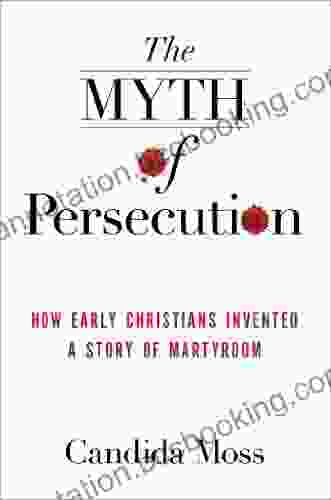Unveiling the Fabricated Story of Christian Martyrdom: A Journey Through Historical Evidence

The story of Christian martyrdom, with its tales of heroic suffering and unwavering faith, has been a cornerstone of Christian belief for centuries. For generations, these narratives have played a pivotal role in shaping the identity, values, and practices of the Christian community. However, recent groundbreaking research is challenging the long-held assumptions about these stories, exposing the constructed nature of Christian martyrdom and its far-reaching impact on the development of Christianity.
4.3 out of 5
| Language | : | English |
| File size | : | 608 KB |
| Text-to-Speech | : | Enabled |
| Screen Reader | : | Supported |
| Enhanced typesetting | : | Enabled |
| Word Wise | : | Enabled |
| Print length | : | 323 pages |
The Fabrication of Martyrdom: Historical Evidence
Historians and biblical scholars have meticulously examined the historical record, scrutinizing the accounts of Christian martyrs. Their findings paint a starkly different picture from the traditional narrative. Rather than being victims of widespread and systematic persecution, as early Christian texts claim, the evidence suggests that the vast majority of alleged martyrs were, in fact, individuals who were executed for crimes against the Roman Empire.
Scholars point to the fact that many so-called martyrs were convicted of serious offenses, such as treason, sedition, and arson. The Roman Empire, known for its pragmatic and legalistic approach to governance, typically reserved capital punishment for those who posed a threat to imperial authority. The notion that Christians were indiscriminately targeted for their faith simply doesn't align with the historical record.
Furthermore, the earliest Christian texts, such as the New Testament, contain very few accounts of martyrdom. It is only in later writings, written decades or even centuries after the alleged events, that the stories of Christian suffering and death began to proliferate. This delayed and evolving nature of the martyrdom narrative raises serious questions about its authenticity and reliability.
The Political and Social Context: A Crucible for Storytelling
To understand the emergence of the Christian martyrdom narrative, it is essential to examine the political and social context of the Roman Empire in the first few centuries of the Common Era. The empire was a vast and diverse realm, grappling with religious, ethnic, and political tensions. Amidst this tumultuous landscape, Christianity emerged as a new and relatively obscure religious movement.
In this competitive and often hostile environment, the Christian community sought ways to establish its legitimacy and authority. Martyrdom stories provided a powerful tool for bolstering the faith and inspiring followers. By portraying Christians as innocent victims of persecution, these narratives fostered a sense of shared suffering and persecution consciousness.
Moreover, the stories of martyrdom served a strategic political function in the Christian community's ongoing struggle for recognition and influence within the Roman Empire. By casting the empire as a persecuting power, Christian leaders sought to create a contrast between the righteous suffering of their followers and the cruelty of the imperial authorities. This rhetorical strategy helped to create a sense of moral superiority and justify the Christian community's claims to authority.
The Legacy of Martyrdom: A Shaping Influence on Christianity
The story of Christian martyrdom has had a profound impact on the development of Christianity over the centuries. The veneration of saints and martyrs became a central aspect of Christian piety, with their stories inspiring countless works of art, literature, and music. The concept of martyrdom also served as a powerful motivator for missionary activity and social activism, driving Christians to spread their faith and alleviate suffering in the world.
However, the fabricated nature of the early Christian martyrdom narrative has raised important questions about the reliability and authenticity of Christian tradition. It has also led to a critical reevaluation of the ways in which power and politics have shaped the development of Christianity.
Unveiling the fabricated story of Christian martyrdom is not an attempt to diminish the suffering and sacrifices made by early Christians. Rather, it is a recognition of the complexity and contested nature of historical events. By critically examining the evidence and acknowledging the constructed nature of these stories, we can gain a deeper understanding of the origins and development of Christianity.
The journey through historical evidence reveals that the story of Christian martyrdom is a powerful narrative that has been shaped by political, social, and religious forces. By uncovering the truth behind these stories, we can gain a more nuanced appreciation of the challenges and triumphs of early Christianity. Only through critical inquiry and open-minded exploration can we fully understand our shared past and its enduring legacy.
4.3 out of 5
| Language | : | English |
| File size | : | 608 KB |
| Text-to-Speech | : | Enabled |
| Screen Reader | : | Supported |
| Enhanced typesetting | : | Enabled |
| Word Wise | : | Enabled |
| Print length | : | 323 pages |
Do you want to contribute by writing guest posts on this blog?
Please contact us and send us a resume of previous articles that you have written.
 Book
Book Novel
Novel Page
Page Chapter
Chapter Text
Text Story
Story Genre
Genre Reader
Reader Library
Library Paperback
Paperback E-book
E-book Magazine
Magazine Newspaper
Newspaper Paragraph
Paragraph Sentence
Sentence Bookmark
Bookmark Shelf
Shelf Glossary
Glossary Bibliography
Bibliography Foreword
Foreword Preface
Preface Synopsis
Synopsis Annotation
Annotation Footnote
Footnote Manuscript
Manuscript Scroll
Scroll Codex
Codex Tome
Tome Bestseller
Bestseller Classics
Classics Library card
Library card Narrative
Narrative Biography
Biography Autobiography
Autobiography Memoir
Memoir Reference
Reference Encyclopedia
Encyclopedia Bace Flores
Bace Flores Thomas P Stafford
Thomas P Stafford J Andrew Royle
J Andrew Royle Daniel J Levitin
Daniel J Levitin John Smith
John Smith Fridtjof Nansen
Fridtjof Nansen Julius Lester
Julius Lester Vicki Croke
Vicki Croke Gareth Dale
Gareth Dale Rafael Ocasio
Rafael Ocasio Arthur Ransome
Arthur Ransome Gael Berton
Gael Berton Mike Malbrough
Mike Malbrough Jeff Lemire
Jeff Lemire Brooke Rundle
Brooke Rundle Lynne Delaney
Lynne Delaney Garr Reynolds
Garr Reynolds Grace May Carter
Grace May Carter Rebecca Lawson
Rebecca Lawson Gabriel Levin
Gabriel Levin
Light bulbAdvertise smarter! Our strategic ad space ensures maximum exposure. Reserve your spot today!
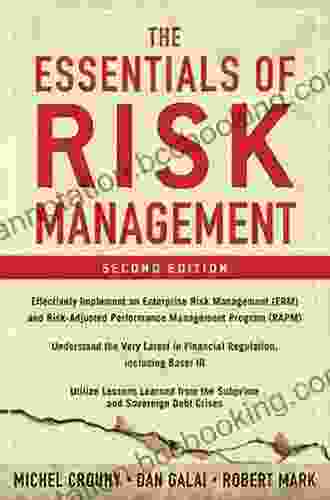
 Abe MitchellUnlock the Secrets of Risk Management: Discover the Essential Guide for Every...
Abe MitchellUnlock the Secrets of Risk Management: Discover the Essential Guide for Every...
 Colt SimmonsUnleash Your Authentic Self: Discover the Courage to Be Unabashedly You with...
Colt SimmonsUnleash Your Authentic Self: Discover the Courage to Be Unabashedly You with... Carter HayesFollow ·13.7k
Carter HayesFollow ·13.7k Shaun NelsonFollow ·8.6k
Shaun NelsonFollow ·8.6k Philip BellFollow ·11.6k
Philip BellFollow ·11.6k Jason HayesFollow ·8.6k
Jason HayesFollow ·8.6k Ray BlairFollow ·18.5k
Ray BlairFollow ·18.5k Hector BlairFollow ·18.8k
Hector BlairFollow ·18.8k Jessie CoxFollow ·12.5k
Jessie CoxFollow ·12.5k Gregory WoodsFollow ·13.9k
Gregory WoodsFollow ·13.9k
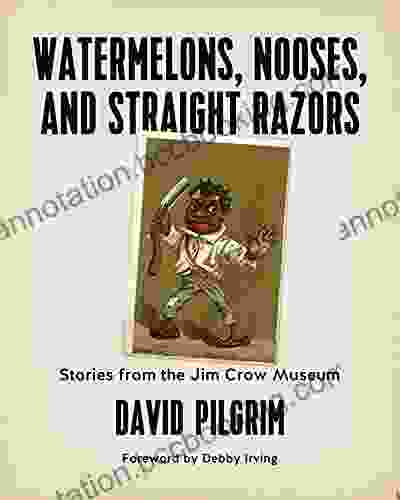
 Voltaire
VoltaireStories From The Jim Crow Museum: Unveiling the Haunting...
A Journey into the Depths of...
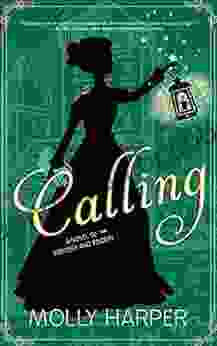
 F. Scott Fitzgerald
F. Scott FitzgeraldCalling Sorcery And Society: Illuminating the...
: The Alluring Embrace of Sorcery ...

 Marcel Proust
Marcel ProustBranding Bud: Unveiling the Green Rush
As the legalization...

 Henry Wadsworth Longfellow
Henry Wadsworth LongfellowColorful Dreamer: The Story of Artist Henri Matisse
Henri Matisse was a French artist...
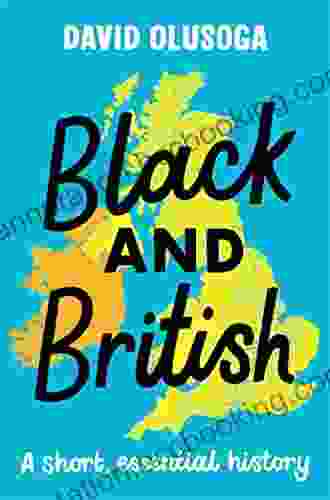
 Adrian Ward
Adrian WardDelving into the Tapestry of Black British Identity: A...
In the realm of historical...
4.3 out of 5
| Language | : | English |
| File size | : | 608 KB |
| Text-to-Speech | : | Enabled |
| Screen Reader | : | Supported |
| Enhanced typesetting | : | Enabled |
| Word Wise | : | Enabled |
| Print length | : | 323 pages |


